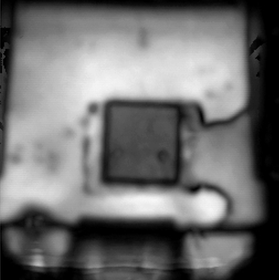There are three types of suspected samples! The collected particles are automatically counted in order of size, and the particles can be measured.
The issue of microplastic waste in oceans and rivers is gaining global attention. Our company conducts "microplastic analysis" (from sampling to particle measurement to particle material analysis) using pseudo-samples to address this issue. We added pseudo-samples to water, performed suction filtration, and dispersed them on filter paper to conduct particle counting measurements using light scattering analysis. 【Features】 ■ Three types of pseudo-samples ■ Added pseudo-samples to water for suction filtration and dispersion on filter paper ■ Conducted particle counting measurements using light scattering analysis ■ Automatically counted collected particles in descending order, allowing for particle measurement ■ Detailed analysis of counted particles is possible *For more information, please refer to the related links or feel free to contact us.
Inquire About This Product
basic information
【Sample Materials】 ■Aromatic Nylon (fragments produced during grinding) ■PBT (adhered near the nozzle of the injection molding machine) ■PBT (pellet fragments found in the dryer of the injection molding machine) *For more details, please refer to the related links or feel free to contact us.
Price range
Delivery Time
Applications/Examples of results
For more details, please refer to the related links or feel free to contact us.
Company information
In particular, the "environmental management" that we propose is not merely a means to enhance corporate image or a passport for transactions. For example, within the efforts to obtain "ISO 14001 certification," we believe that it is fundamentally an initiative towards "management reform," aiming to create a company that practices "organizational development," "human resource development," and "improvements in materials and production methods," while accurately executing the "PDCA cycle."




![[Research Material] Global Market for Portable Air Pollution Analysis Devices](https://image.mono.ipros.com/public/product/image/3d2/2001460485/IPROS92458011848641598418.jpeg?w=280&h=280)

![[Analysis Case] High-Sensitivity Analysis of Light Elements in Semiconductor Substrates Using SIMS](https://image.mono.ipros.com/public/product/image/bff/2000026119/IPROS1320775171095140593.jpg?w=280&h=280)


![[Analysis Case Study] Observation of Adhesion State Through Metal Plates Using Ultrasonic Microscopy](https://image.mono.ipros.com/public/product/image/367300/IPROS2705829217984245675.png?w=280&h=280)

![Modeling of Power Systems and B-EMS [Simulink Example]](https://image.mono.ipros.com/public/product/image/2007121/IPROS15993127093204478693.jpg?w=280&h=280)